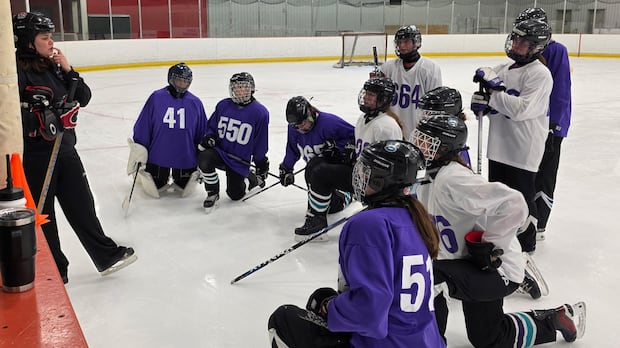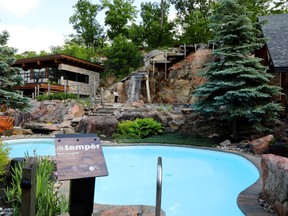Top Stories
Ice Time Crisis: Ottawa Coaches Demand Better Access NOW

UPDATE: Ice time shortages are plaguing Ottawa as local coaches demand urgent solutions to a growing crisis. Longtime hockey and ringette coach Dave McWaters expresses frustration over empty arenas during peak hours, highlighting a stark mismatch between demand and availability.
The rising interest in girls’ ice sports is exacerbating the issue. “For several years I’ve noticed that there’s ice empty at prime time, during the day on a Saturday and Sunday,” McWaters stated. As minor hockey and ringette associations scramble to secure ice time, the financial burden is significant—associations pay between $205 and $342 per hour, leading to expenses that can exceed $330,000 annually for organizations like the City of Ottawa Ringette Association (CORA).
Each spring, sports associations submit their ice requests to the City of Ottawa, but adjustments afterward can incur cancellation fees, limiting flexibility. The demand is intensifying, especially with participation in women’s and girls’ hockey reaching record levels—over 115,000 players registered for the 2024-2025 season, according to Hockey Canada.
To counteract the ice shortage, McWaters launched a Facebook group, the Ottawa Area Ice Exchange, allowing teams to resell pre-paid ice slots they can no longer use. “They can resell it at the cost that they bought it at, or at a discounted price if necessary,” he explained. This initiative aims to reduce the amount of “burnt ice,” or unused ice time, particularly affecting teams that exit playoff contention but have already paid for practice sessions.
The City is aware of these challenges. Dan Chenier, the city’s general manager of recreation, cultural and facility services, stated, “When a pattern of underused ice is identified, staff follow up directly with the group to address the issue and encourage efficient use of allocated time.” Chenier emphasized the importance of fairness and accountability in utilizing public facilities.
As the season progresses, the problem of unutilized ice time grows, with teams often left with leftover slots. McWaters pointed out that the booking process often feels like “educated guesswork,” especially when trying to accommodate increasing numbers of players.
The struggle is compounded by aging rinks facing mechanical issues, making it harder to secure reliable ice time. McWaters noted, “We have a lot of single, older rinks. And they tend to have mechanical issues and issues where the ice may go down.”
With the popularity of ice sports surging, immediate action is necessary to address the pressing ice time crisis in Ottawa. As communities rally around their athletes, the demand for equitable access to ice time remains a critical issue that requires urgent attention from city officials and sports associations alike.
What’s next? Local coaches and associations will continue to advocate for better planning and resources to ensure all players have the opportunity to participate in their beloved sports without the ongoing headache of ice time shortages.
-

 World4 months ago
World4 months agoScientists Unearth Ancient Antarctic Ice to Unlock Climate Secrets
-

 Entertainment4 months ago
Entertainment4 months agoTrump and McCormick to Announce $70 Billion Energy Investments
-

 Lifestyle4 months ago
Lifestyle4 months agoTransLink Launches Food Truck Program to Boost Revenue in Vancouver
-

 Science4 months ago
Science4 months agoFour Astronauts Return to Earth After International Space Station Mission
-

 Technology2 months ago
Technology2 months agoApple Notes Enhances Functionality with Markdown Support in macOS 26
-

 Top Stories3 weeks ago
Top Stories3 weeks agoUrgent Update: Fatal Crash on Highway 99 Claims Life of Pitt Meadows Man
-

 Sports4 months ago
Sports4 months agoSearch Underway for Missing Hunter Amid Hokkaido Bear Emergency
-

 Politics3 months ago
Politics3 months agoUkrainian Tennis Star Elina Svitolina Faces Death Threats Online
-

 Politics4 months ago
Politics4 months agoCarney Engages First Nations Leaders at Development Law Summit
-

 Technology4 months ago
Technology4 months agoFrosthaven Launches Early Access on July 31, 2025
-

 Top Stories1 week ago
Top Stories1 week agoFamily Remembers Beverley Rowbotham 25 Years After Murder
-

 Entertainment4 months ago
Entertainment4 months agoCalgary Theatre Troupe Revives Magic at Winnipeg Fringe Festival





















